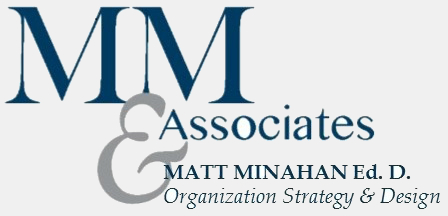Leveraging Senior Leadership
Overall Objectives:
Accelerate the transformation of the organization by broadly increasing the "return on investment" in senior management time ... so that the senior leaders increasingly focus on higher-return activities.
Specifically, help facilitate the personal transformation of selected senior leaders (the next generation) .... So that the organization develops more of an ongoing capacity to renew itself in the face of a constantly changing environment.
Strengthen the ability of senior leadership to work as a team across the organization's various boundaries- to tackle complex, strategic and critical issues more effectively and efficiently.
Develop an organization-wide methodology/approach/set of best practices for leadership transformation and development, and ongoing measurement of "return on leadership."
Some Leadership Leverage Questions (i.e. What are we talking about?)
How do senior leaders find the right balance between time spent with clients, other senior managers, their own management team, their staffs, the Board, other constituent groups- with time left over for family and personal pursuits?
What are the highest leveraged and most value-added contributions of senior leadership? To develop strategy and set it in motion? To make day-to-day decisions? To contribute to content? To develop the capacity of the Bank's manager's and staff? To create an environment where others can succeed? To inspire others?
What do senior leaders do that adds little value or can be done by others at less cost?
What psychological and emotional patterns drive senior leadership behaviors, such as avoidance of conflict, need to control, inability to make decisions on the basis of incomplete data, etc.?
When do senior leaders in the organization need to work with each other to achieve greater leverage? What prevents such teamwork? How can it be fostered?
What can senior leaders learn from each other? How can they create a learning community amongst themselves, with "safe space" for sharing challenges and issues?

